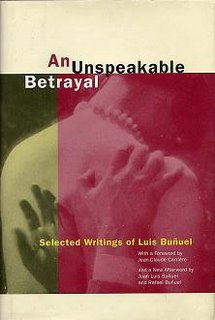It looks like actors and directors, although working for a common goal to make a good film, have different ways to meet their ends. An able director wants to direct an actor in the way he likes, whether or not s/he is aware of what he is doing and an able actor wants to know what he is doing so that he can perform it to the fullest. Its not the question who should succumb to whom in this tussle of knowing, not knowing and acting, not acting, but its very interesting to look from the director's and actor's point of views on that, especially directors'. Acting sometimes reminds me of playback singing, where the singer is really on the mercy of music director, lyricist and the sound engineer. Some of directors go by some must-have qualities for their actors as Fellini once famously said, For me a clownesque talent in an actor is the most precious gift s/he can have, others don't go by any particular talent.

Sometimes all this gives us reasons why some of the directors have a chamber of actors with whom they want to work with, looks like they have made peace in the conflicting requirements or why some of the directors go for non-actors, freshers, just not to let the actor's acting skills and some acquired persona to meddle with their own vision or why for some directors actors are like props which just fill the frame as a building or even light, or why some directors go for suffocating close-ups of the talented actors or why acting is not always about acting, its is at times about not acting too.
Maggie Cheung, one of the stars of Wong kar-wai films, seemed baffled by the way director works and how she is given no knowledge of what she should be. In the special features of In Mood for Love's DVD, in a small press interview with lead pair of the movie, Maggie Cheung and Tony Leung, Maggie seemed quiet unhappy by the way Kar-wai was working and in the way Kar-wai eluded any questions that Cheung asked about her character, though in public, she tried to show all the respect for the director's vision and craftsmanship. On the other hand Tony Lueng seemed ok with Kar-wai unexplained ways probably because he has worked on many films with the director but Maggie Cheung was working after a gap of 10 years, previously they worked together in Days of Being Wild, when both the director and the actor were almost new. Here is an excerpt from an interview where Maggie explains the funny way Kar-wai worked.
Q:How was Wong Kar-wai while making the movie?
MC:Sometimes he has to switch the camera to slow motion but we don't even know it because the camera is far away and we don't even hear the machines going. He will see a shot and then suddenly he will picture it as a slow motion shot and he'll just say, let's try one of those, and then he'll just do it, without us even knowing.
If you have seen Bowfinger, apparently it seems like War-kai is doing the same, but he is surely trying to achieve much more than that.
Also there are cases where actors (even reviewers) complained after seeing the movie that they (actors) have been 'used'. One particular example is The Last tango in Paris, where Maria Schneider, after seeing the film, told that she has been raped, and I think similar comments are made by Marlon Brando too. And what about Roger Ebert's furious uproar after watching Blue Velvet and his well-known sympathy for lovely Isabella Rossellini . Here is what Maria Schneider has to say.
MS: When I read Last Tango In Paris, I didn't see anything that worried me. I was 20. I didn't want to be a star, much less a scandalous actress - simply to be in cinema. Later, I realized I'd been completely manipulated by Bertolucci and Brando.
On the other hand some directors will like an actor to act as gently, as naturally and at times at remotely as possible. Here what Antonioni has to say about acting.
Michaelangelo Antonioni: The film actor need not understand but simply be. One might reason that in order to be it is necessary to understand. That's not so. If it were, then the most intelligent actors will be the best actors. Reality often indicate the opposite...His reactions on the character he is playing, which according to the popular theory should bring him closer to the exact characterization, end up by thwarting his efforts and depriving him of naturalness. The film actor should arrive for shooting in the state of virginity. The more intuitive his work the more spontaneous it will be.
Some of the directors altered the whole concept of acting, by using non-actors. Robert Bresson used people from street who don't bring any acting baggage with them and calling them 'models'. His views on acting are very novel and very extreme.
Robert Bresson: The actor learning his part presupposes a 'self' known in advance - which does not exist.
Bresson has gone to an extreme to take a donkey in the lead of his well known masterpiece Au hasard Balthazar.
There will is a tussle to act by knowing the part and to be the part by not knowing it and actors and directors taking their stands somewhere on this line-- the closer, the better. With all this, it seems I have a soft corner for the Bressonian Donkeys, which I do and all this vaguely reminds me of a scene in The Seventh Seal, where in response to Death coming for him, an actor responds, Is there no exemption for actors?


